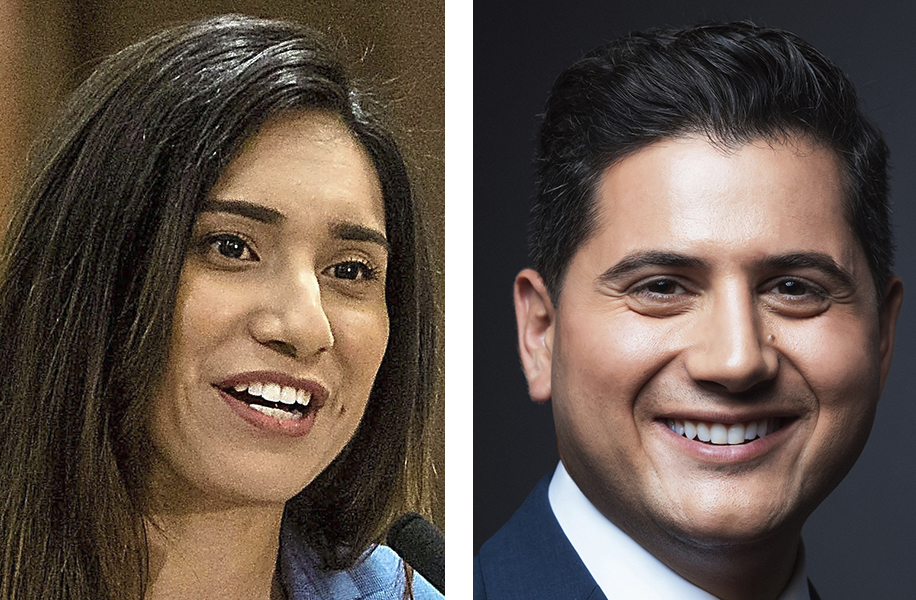
In Sacramento, the right bill number can send a message. For example, 420, a figure that’s celebrated in cannabis culture, has been used as a bill number for marijuana-related legislation.
Assemblymember Sabrina Cervantes, D-Riverside, is sponsoring a bill to impose penalties on Assembly or state Senate candidates who register to vote outside of the district they want to represent — especially when they are already certified to run in those districts.
While the bill doesn’t mention Assemblymember Bill Essayli by name, the number assigned to it — AB63 — matches that of the district he represents. Cervantes confirmed Essayli’s race for the 63rd inspired her bill, but did not answer a question about whether she requested the number 63.
Katie Talbot, a spokesperson for Assembly Speaker Anthony Rendon, said that while bills are numbered in the order they are received — the first bill of the year is AB 1, for example — lawmakers have sought specific numbers for their bills “for a variety of reasons.”
A Republican elected in November to an open seat in the newly drawn 63rd Assembly District, Essayli registered to vote in Anaheim, which is outside the 63rd, on the day of California’s primary election in June.
AB 63 seeks to make future candidates who do that ineligible for public office.
Current state law requires Assembly candidates, at the time they receive papers to run, to be registered voters in the districts in which they’re running, which Essayli was. He was registered to vote in the 63rd at the time he filed candidacy papers, and the Riverside County Registrar of Voters certified him as a candidate in that district.
Essayli and his chief of staff did not respond to requests for comment. Essayli’s district includes Norco, Menifee, Lake Elsinore, Canyon Lake and parts of Eastvale, Riverside and Corona.
In an emailed statement, Cervantes said: “The campaign for Assembly District 63 illustrated an existing issue regarding residency requirements in our elections laws.
“I am committed to finding a solution to this problem so we can continue to maintain the trust of the voters in the transparency and integrity of California’s elections,” she added. She did not elaborate on how AB 63 would protect election integrity and transparency.
Marcia Godwin, a professor of public administration at the University of La Verne, said there’s a “long history of California legislators trying to fix candidate eligibility issues with specialty legislation after the fact — whether it is district residency, incompatible offices, or reappointment after resignation.”
“The fact that Cervantes was able to get a bill with the same number as Essayli’s district speaks to it already having at least tacit approval from the Democratic leadership,” Godwin said.
Related links
Inland Assembly candidate’s voter registration becomes campaign issue
Bill Essayli, Fauzia Rizvi answer questions in 63rd Assembly District race
Inland Assemblymember Sabrina Cervantes to run for state Senate
Riverside Councilmember Clarissa Cervantes to run for state Assembly, aims to replace sister
Here’s who won the Nov. 8 election in Riverside County
Cervantes, who was first elected in 2016, and Essayli have some history. He lost to her in 2018 after leading Cervantes in early returns.
Cervantes’ sister, Riverside City Councilmember Clarissa Cervantes, worked on the campaign of Fauzia Rizvi, the Democrat that Essayli beat in November. Rizvi used Essayli’s residency in attack ads that tried to paint him as an outsider with no attachment to the 63rd.
Essayli, a former federal prosecutor, finished ahead of fellow Republican Clint Lorimore in the primary and got 59% of the vote in November to defeat Rizvi.
AB 63, which Sabrina Cervantes introduced in December, has not yet been assigned to an Assembly committee.
